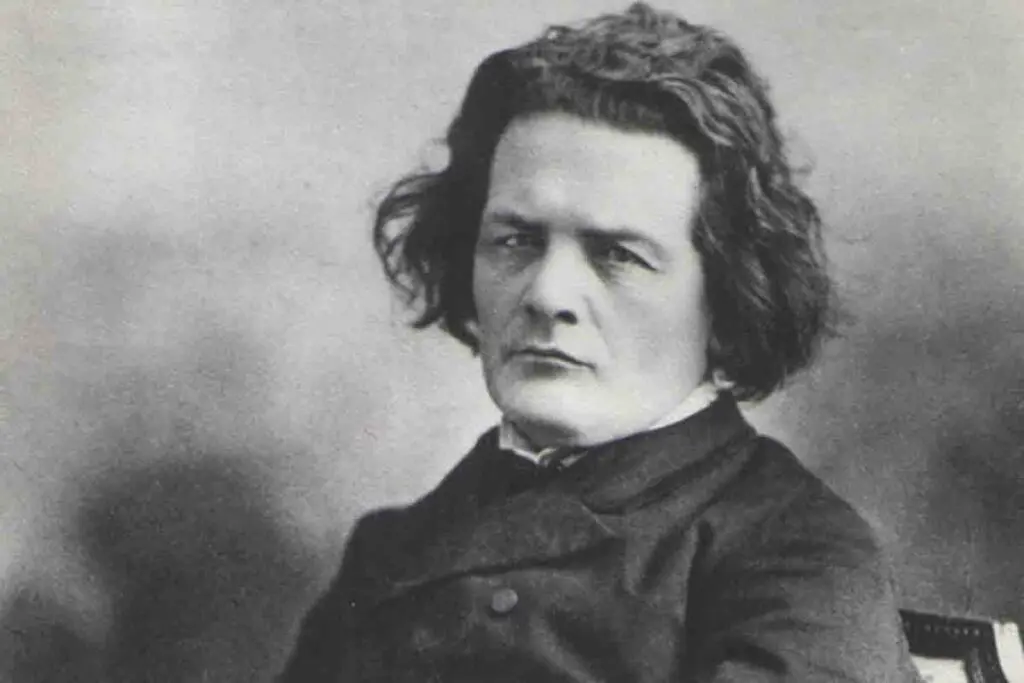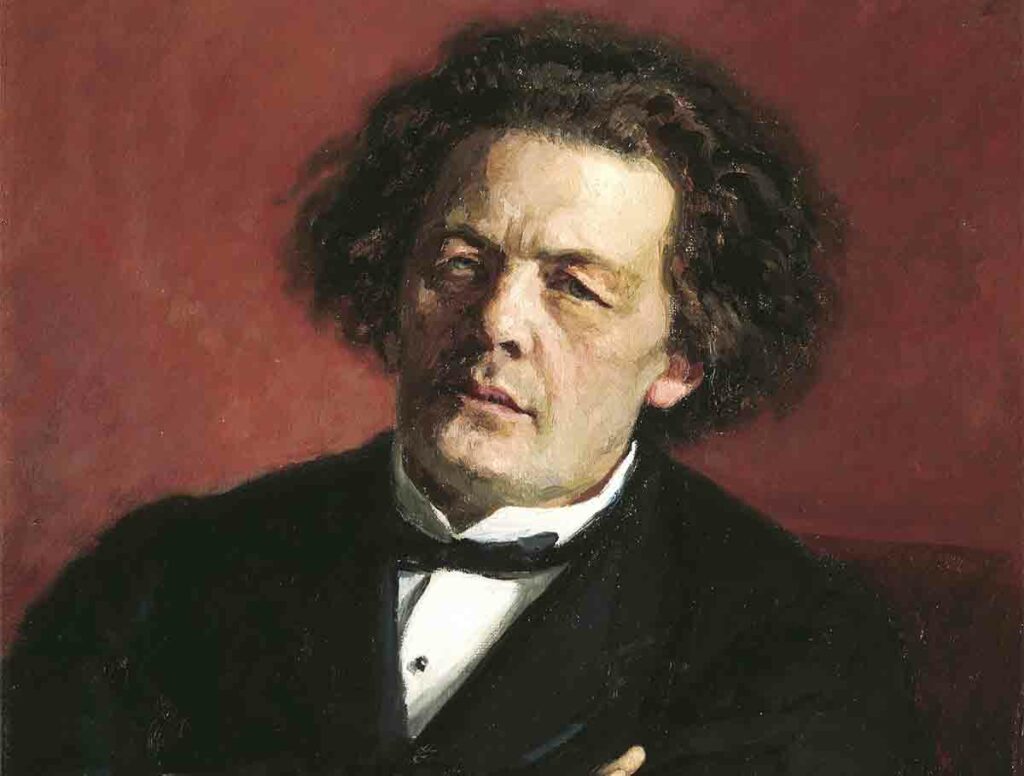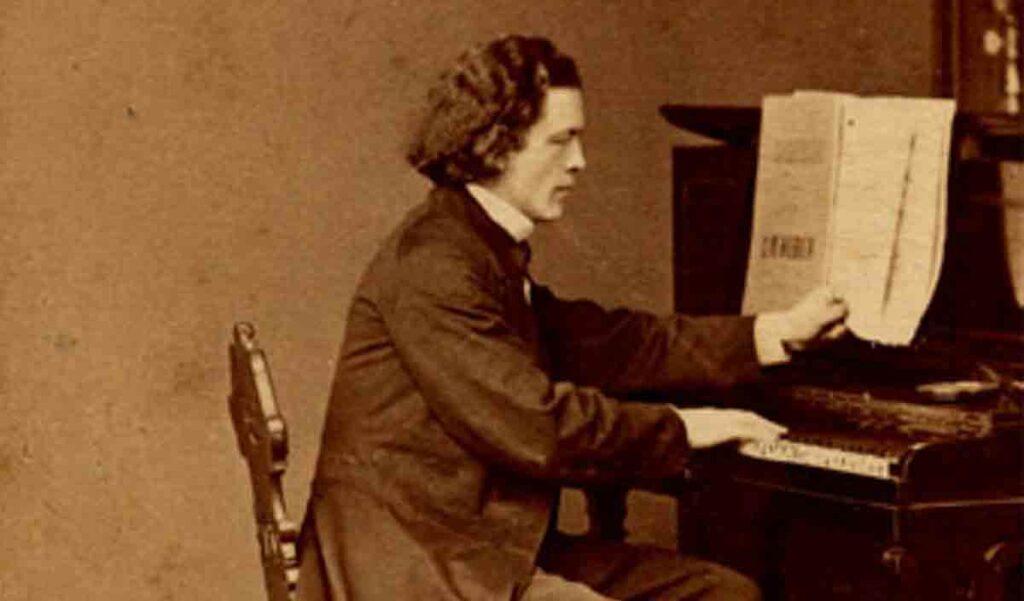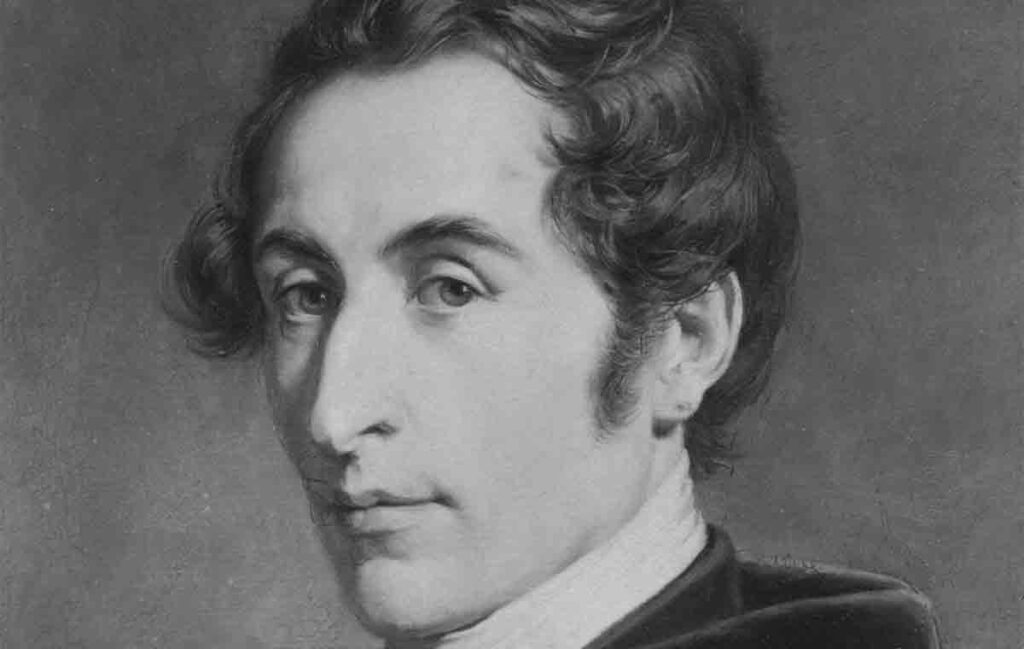Anton Rubinstein became famous as a musician, composer and conductor. Many compatriots did not perceive the work of Anton Grigorievich. He managed to make a significant contribution to the development of classical music.

Childhood and youth
Anton was born on November 28, 1829 in the small village of Vykhvatynets. He came from a family of Jews. After all family members converted to Orthodoxy, they received a unique opportunity to move to the capital of Russia. In the metropolis, the family even opened a small business that gave good income.
The head of the family opened a small factory for the production of pins and small items. And the mother was engaged in raising children.
Anton Rubinstein's mother played the piano beautifully. When she noticed that the boy was interested in a musical instrument, she decided that she would take up his training. Soon she enrolled her son in private music lessons with the talented teacher Alexander Ivanovich Villuan.
Little Rubinstein demonstrated excellent piano playing. Already in 1839, Alexander allowed a talented student to speak publicly. A year later, Anton, with the support of his teacher, went to Europe. There he spoke to the cream of society. And even demonstrated musical abilities in the circle of such famous composers as Franz Liszt and Frederic Chopin.
After 5 years, the guy briefly returned to his homeland. After spending some time at home, he went to Berlin. In a foreign country, Anton Grigorievich took music lessons from Theodor Kullak and Siegfried Dehn. All this time, the musician was supported by his mother and brother. The mother could not send her son alone to a foreign country, because she considered Anton a dependent person.
A year later, it became known that the head of the family had died. Anton's mother and elder brother were forced to leave Berlin. Rubinstein went to the territory of Austria. In a foreign country, he continued to improve his keyboard skills.
Anton Grigorievich did not like it very much there. In addition, during this period of time, he never learned how to earn a living. It was for these reasons that he was forced to leave Austria and move to his father's house. Soon the composer moved to the cultural capital of Russia. In St. Petersburg, he took up teaching.

The work of maestro Anton Rubinstein
The musician was immediately noticed in the cultural St. Petersburg society. The fact is that Rubinstein often spoke to the imperial family and other celebrities. Thanks to his popularity, Anton Grigorievich met the members of the popular cultural society "The Mighty Handful".
Under the influence of the association, Rubinstein tried his hand as a conductor. In 1852, he presented the opera "Dmitry Donskoy" to fans of classical music. The opera was warmly received not only by the audience, but also by authoritative music critics.
Soon, the maestro's musical treasury was replenished with several more immortal operas. In the presented works, the composer actively touched upon the themes and melodies of the peoples of Russia. In addition, he paid tribute to the new Western trends in music.
Rubinstein then tried to create a specialized academy. He made several attempts to create an educational institution, but they were all unsuccessful. Nobody supported Anton, so he quickly gave up.
At that time, the works of the maestro were unclaimed. None of the existing theaters wanted to take on their production. He had no other choice but to test his composing talent abroad. With the support of his friend Liszt abroad, he staged the opera Siberian Hunters. He also held a many-hour concert in the city of Leipzig. The performance of the Russian composer made the most pleasant impressions on the audience. After that, he went on a European tour.
He toured European countries for about four years. The fact that the audience gave Rubinstein a standing ovation inspired the musician. He began to work on the creation of new operas with even greater dedication.

Founding of the musical society
Being at the peak of his popularity, he managed to persuade high-ranking officials to allocate funds for the creation of a musical society. The idea of the society was the systematic performances of a symphony orchestra led by a maestro.
He then organized music training classes. Gifted musicians were enrolled there, who could improve their skills in playing instruments. Anyone could enter the school. Status didn't matter.
When the number of students increased, Anton Grigoryevich opened the first Russian conservatory in St. Petersburg. Rubinstein took the place of director, conductor and teacher.
Members of the "Mighty Handful" society did not immediately accept the musician's desire to create a musical educational institution. But soon they supported their compatriot.
In the yard, the idea of creating a musical educational institution was also received very hostilely. After Anton Grigorievich had a conflict with a high-ranking person, he left the post of director of the conservatory. In 1887 he returned and directed the conservatory for the following years. Interestingly, this year the famous Russian artist Repin portrayed Rubinstein at his favorite pastime.
Anton Grigoryevich said that, despite significant practice, any self-respecting musician should improve his skills and knowledge. He did not stop there, continuing to write operas, romances and plays. At the beginning of 1870, the maestro delighted fans of classical music with the opera The Demon. The source for it was the work of Lermontov. He spent several years on standby. Rubinstein dreamed that his opera would be staged at the Mariinsky Theatre.
After the premiere, most music critics and viewers were indifferent to the production. The opera did not impress the public. Only after the death of the maestro, when the main part was performed by Fedor Chaliapin, did the work become popular. Over the next few years, it was staged in different countries of the world.
Among the maestro's popular works are the symphony "Ocean", the oratorio "Christ" and "Shulamith". As well as operas: Nero, Maccabees and Feramors.
Details of the personal life of the composer Anton Rubinstein
Anton Grigoryevich was a secretive person, so little was known about his personal life. Its main facts are connected with Peterhof. There he was lucky to meet the girl who became his wife. The maestro's wife's name was Vera. Three children were born in the family. A large family lived in a luxurious house, which was located near St. Petersburg. The wife managed to become not only a loving wife, but also an associate of Anton Grigorievich. She inspired the maestro to write brilliant works.
On the second floor of the luxurious house was Anton Grigoryevich's office, which was also decorated to his liking. There was a piano, a small and comfortable sofa in the room. The walls of the study were decorated with family photographs. In this room, Rubinstein composed the composition "The Chirping of Cicadas". As well as a number of other works that were filled with the sounds of nature.
Famous guests often came to the Rubinstein house. The wife of Anton Grigorievich was a very hospitable woman. She did not let her husband get bored, gathering her beloved friends of the illustrious family in her house.
Interesting facts about the composer Anton Rubinstein
- The composer knew what poverty and hunger are. When he became famous, he did not forget about helping those in need. In 1893, in St. Petersburg, he took part in a charity concert for people with visual impairments.
- On the North American tour, he performed over 200 concerts.
- Speaking to the emperor's family, the maestro managed to impress every member of the family. Nicholas I admired the skillful play of the master.
- The musical work “Merchant Kalashnikov”, conducted by Anton Grigoryevich, was banned several times in the Russian Federation.
- He was awarded the title of Honorary Citizen of Peterhof.
The Last Years of Maestro Anton Rubinstein's Life
In 1893, the composer experienced a strong emotional shock. The fact is that at the age of 20, his youngest son died. Against the backdrop of constant stress, he caught a cold. During this period of time, Rubinstein's health deteriorated greatly.
A year later, he began to work diligently. Loads even more affected his body. Doctors advised the maestro to think about the way of life. Rubinstein did not listen to anyone.
At the end of autumn, Anton Grigorievich was constantly in an overexcited state. The problem was exacerbated by insomnia and pain in the left arm. The evening of November 19, the musician spent with friends, and at night he became ill. He complained of labored breathing. Rubinstein held out with all his might, but waited for the doctors to arrive.
Upon the arrival of the doctors, the doctors tried to do everything to pull the maestro out of the other world. But the miracle didn't happen. He died on November 20, 1894. The cause of death was an acute heart attack.



